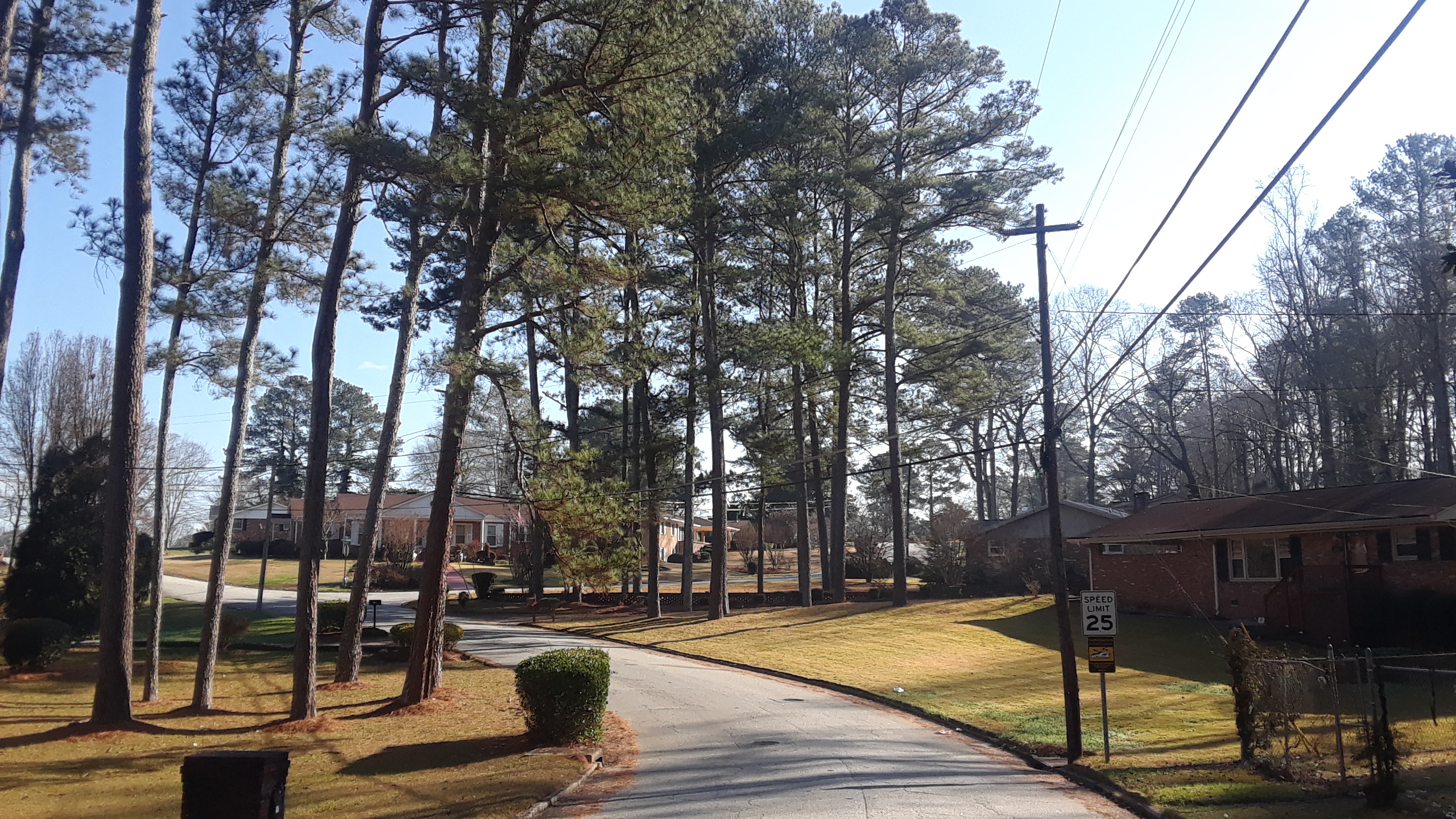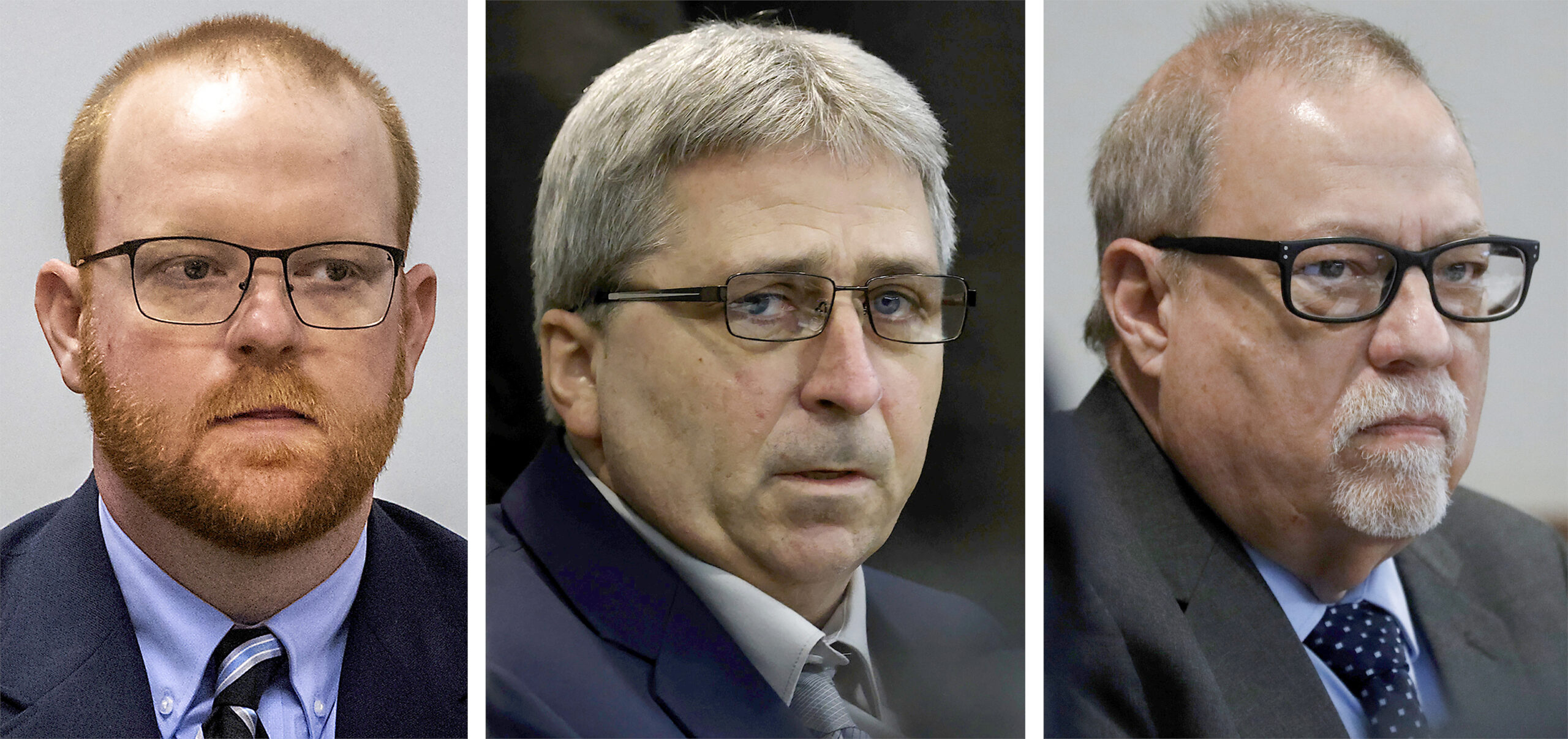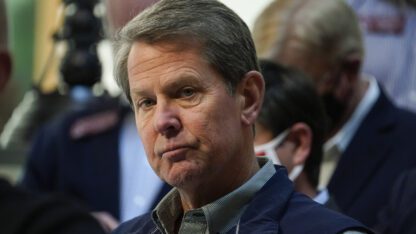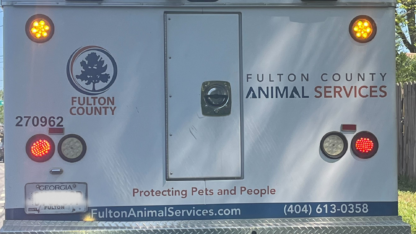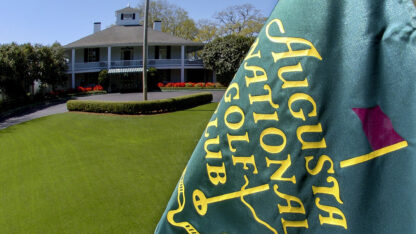‘The Goat Man’ Gets A Gravestone At Oakland Cemetery
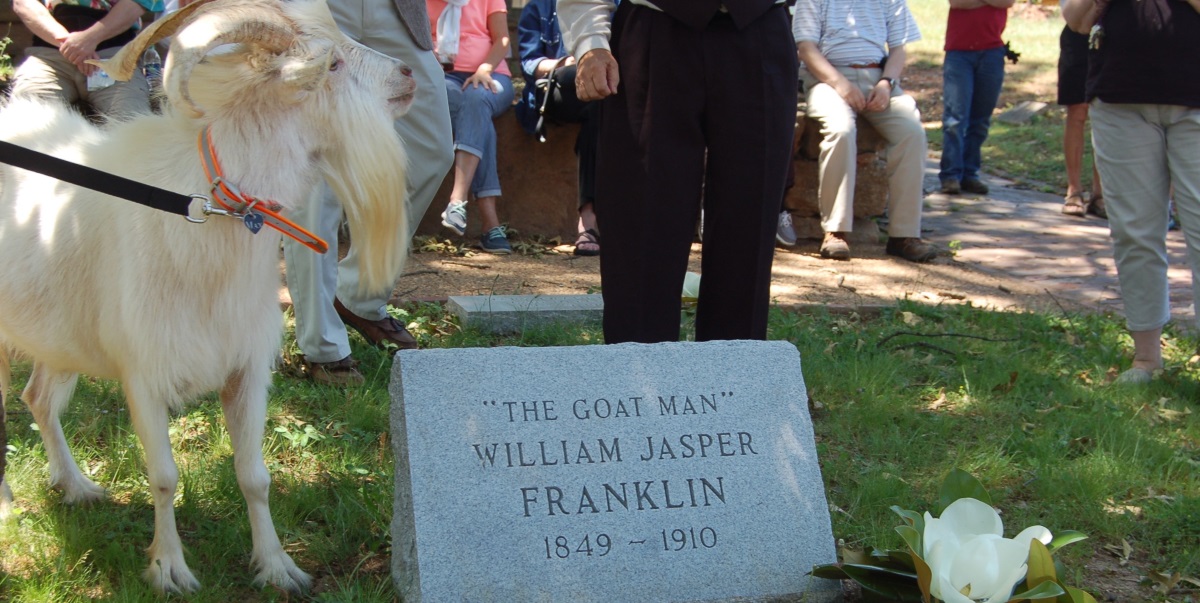
Pamela Henman
Back when Atlanta was still little more than a town, William Jasper “the Goat Man” Franklin was a town character.
Franklin was known as “the Goat Man,” obviously, because of his goat. Franklin had been partially paralyzed by illness, and he relied on a goat named Pete to pull him in a homemade cart around downtown Atlanta as he peddled apples and pencils.
Franklin was born in 1849 – just two years after the city of Atlanta incorporated. He died in 1910 and was buried in Oakland Cemetery next to his parents.
Their graves sat unmarked until earlier this month. In a small ceremony, complete with glasses of sparkling apple cider and a goat named “Max,” the Historic Oakland Cemetery Foundation unveiled three simple headstones for the long-deceased family.
David Moore, president of the History Oakland Cemetery, was a leader in the effort to raise over $2,400 for the gravestones.
“When you look back and consider a humble life, someone who didn’t make a great deal of difference to us as a community, didn’t do ‘great things,’ but in his humble way he was part of the resurgence in rebuilding of Atlanta after the Civil War,” Moore said of Franklin. “He saw a lot of that. Through the eyes, through the lens of history, we can see how our city was shaped, through the eyes of the Goat Man. It’s kind of cool.”
Moore said the Historic Oakland Cemetery Foundation had raised funds for a cemetery resident’s headstone before, that of a 19th century Atlanta entrepreneur and madam.
The foundation raised money for the headstones at the organization’s annual Halloween tours last year. In that event, actors portray “residents” of the historic cemetery – some of whom were as well-known as Bobby Jones and others who were not so famous.
Moore took on the then-little-known role of “the Goat Man.” He donned 19th century attire and sat in a wooden cart hitched to a baa-ing goat, which played the role of Pete.
At that event, Moore had, in character as Franklin, asked tour participants for donations in exchange for pencils, in honor of the “Goat Man’s” old trade. Moore said he felt a connection with the long-deceased Atlantan.
“When you can personalize history and talk about a family who does not have a headstone,” Moore said, “people can identify with that dilemma, in as much as – What if we left this earth and we weren’t remembered, and there was nothing permanent to mark our lives that we lived? I think it struck a nerve with folks, and it certainly struck a nerve with me.”
9(MDAxODM0MDY4MDEyMTY4NDA3MzI3YjkzMw004))
